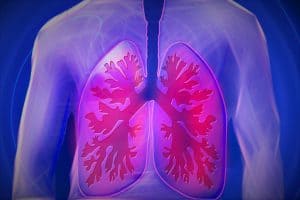NICE reworks cancer guidance for GPs
pharmafile | June 23, 2015 | News story | Sales and Marketing | Cancer, GPs, NICE, UK, baker, research
The National Institute for Health and Care Excellence says thousands of lives will be saved each year if GPs and patients act on its new NHS guidance that highlights cancer symptoms earlier.
The UK watchdog points out that half of the population will be diagnosed with cancer in their lifetime, with the disease being responsible for more than a quarter of all deaths in the UK.
For many terminal cancer cases this will be due to a late diagnosis, which it now seeks to improve.
Professor Mark Baker, clinical practice director at NICE, says: “The best way to successfully treat cancer is to make an early diagnosis. The sooner the disease is identified, the more likely treatment is to be effective. Earlier diagnoses have the potential to save thousands of lives each year.
”What we would ideally like to see is more people acting quickly and seeing their doctor when they notice a particular change to their body, and GPs referring those people in the right direction for tests.”
This updated guidance which builds upon its 2005 work uses a new approach – focussing on the symptoms that a patient might experience and go to their doctor with in order to make NICE’s recommendations easier for GPs to use.
Tables linking signs and symptoms to possible cancers are now set out and include proposals about which tests to perform, and the type of referral to specialist services that should be employed.
Dr Richard Roope who is a practising GP and clinical lead for cancer at Cancer Research UK and the Royal College of General Practice, says these new plans have great potential.
“The guidelines should also give us more freedom to send our patients to see specialists, cutting out delays faced by some patients. Referring patients sooner has many benefits. It can help reduce the number of GP appointments patients have before they see a specialist, which in turn frees up our time for others.
“But ultimately, it could also help more patients to be diagnosed at an early stage, which will boost their chances of long-term survival.”
Brett Wells
Related Content

NICE recommends migraine treatment for NHS use
The National Institute for Health and Care Excellence (NICE) has shared draft guidance recommending AbbVie’s …

Geneos Therapeutics shares data from phase 1/2 trial for cancer vaccine
Geneos Therapeutics has announced that it has published positive safety, immunogenicity and efficacy data from …

Curve Therapeutics’ CSO publishes research on HIF inhibition for cancer treatment
Curve Therapeutics has announced that its chief scientific officer, Professor Ali Tavassoli has published research …








